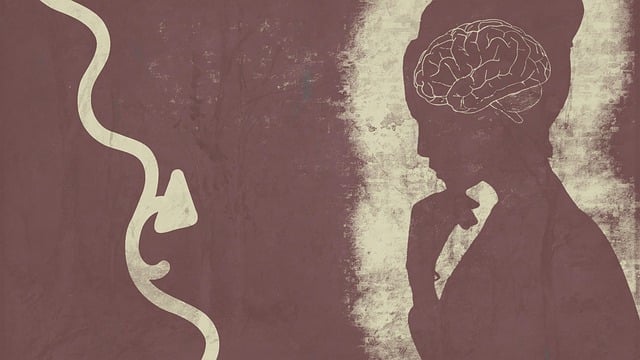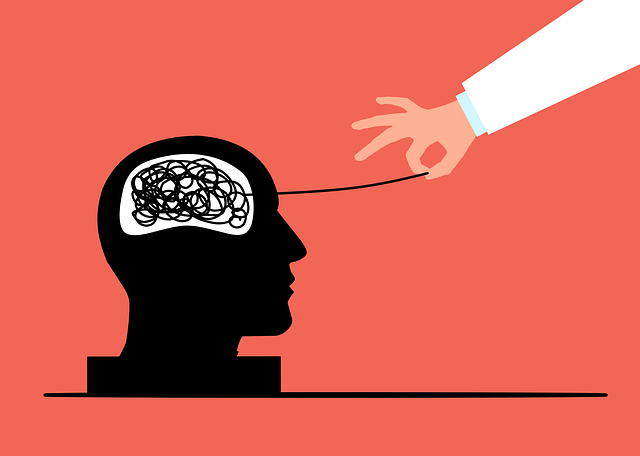Managing Castle Rock Adjustment Disorder (CRAD) involves specialized therapy focusing on identifying triggers, cultivating mindfulness, and implementing consistent self-care routines. Cognitive Behavioral Therapy (CBT) challenges negative thought patterns, while mindfulness practices stabilize emotions and build resilience. Long-term mood regulation combines therapeutic interventions with lifestyle changes like exercise, diet, sleep, and social connections, empowering individuals to navigate CRAD symptoms and promote mental well-being through effective coping mechanisms.
Mood regulation strategies are essential tools for managing emotional well-being, especially for those dealing with conditions like Castle Rock Adjustment Disorder. This comprehensive guide explores various approaches to stabilize emotions, offering a multi-faceted approach to mental health care. We delve into evidence-based therapies such as Cognitive Behavioral Therapy (CBT) techniques tailored for mood management and the transformative power of mindfulness practices. Additionally, we highlight lifestyle changes and the role of support networks in fostering long-term emotional resilience, including strategies for navigating challenges like Castle Rock Adjustment Disorder therapy.
- Understanding Mood Regulation and Castle Rock Adjustment Disorder
- Cognitive Behavioral Therapy (CBT) Techniques for Mood Management
- Mindfulness and Meditation Practices to Stabilize Emotion
- Lifestyle Changes and Support Networks for Long-Term Mood Regulation
Understanding Mood Regulation and Castle Rock Adjustment Disorder

Understanding Mood Regulation involves recognizing and managing emotional states to achieve a sense of balance and well-being. It’s about learning to navigate life’s challenges with resilience, adapting to stressful situations, and cultivating positive coping mechanisms. For individuals dealing with Castle Rock Adjustment Disorder (CRAD), this process becomes crucial. CRAD, characterized by persistent feelings of sadness, hopelessness, and anxiety, often requires specialized therapy to help individuals adjust and cope effectively.
Therapy for CRAD typically focuses on identifying triggers, developing inner strength, and implementing self-care routines for better mental health. Techniques such as cognitive behavioral therapy (CBT) teach individuals to challenge negative thought patterns and behaviors. Additionally, stress management workshops organized by support groups can equip people with valuable tools to manage stress and regulate mood. Inner strength development through mindfulness practices and cultivating a consistent self-care routine are also vital components in managing CRAD symptoms.
Cognitive Behavioral Therapy (CBT) Techniques for Mood Management

Cognitive Behavioral Therapy (CBT) is a powerful tool for managing mood disorders like Castle Rock Adjustment Disorder. CBT techniques focus on identifying and changing negative thought patterns that can contribute to emotional distress. Through structured conversations with a trained therapist, individuals learn to challenge distorted thinking and develop healthier cognitive responses. This process empowers them to manage their emotions more effectively in various situations.
One key aspect of CBT for mood regulation is compassion cultivation. Encouraging patients to keep a mental wellness journal where they reflect on their experiences, including difficult ones, fosters self-compassion. By practicing self-compassion, individuals can reduce harsh self-criticism and increase emotional resilience. Additionally, CBT incorporates specific exercises like journaling guidance to help clients track their moods, identify triggers, and gain insights into their emotional patterns, thereby enhancing overall emotional regulation.
Mindfulness and Meditation Practices to Stabilize Emotion

Mindfulness and meditation practices have emerged as powerful tools to stabilize emotions and promote mental well-being. By focusing on the present moment and cultivating a non-judgmental awareness, individuals can effectively manage stress and emotional turmoil associated with conditions like Castle Rock Adjustment Disorder. These techniques encourage a deeper understanding of one’s thoughts and feelings, fostering resilience building and depression prevention.
Incorporating mindfulness into daily routines can enhance cultural sensitivity in mental healthcare practice. It allows people from diverse backgrounds to find common ground and connect with their inner selves on a profound level. Through consistent practice, individuals develop the ability to navigate life’s challenges with greater equanimity, leading to improved emotional stability and overall mental health.
Lifestyle Changes and Support Networks for Long-Term Mood Regulation

Long-term mood regulation requires a multifaceted approach, and lifestyle changes play a pivotal role in this journey. Beyond traditional therapy like Castle Rock Adjustment Disorder Therapy, individuals can empower themselves through sustainable habits. Incorporating regular exercise, maintaining a balanced diet, and prioritizing quality sleep significantly impact emotional well-being. These foundational elements help reduce stress levels and improve overall mood stability.
Additionally, building and leveraging support networks is invaluable. Strong social connections offer a sense of belonging and empathy, which are crucial for managing emotions effectively. Whether through mindfulness meditation practices that foster inner strength development or empathy-building strategies that enhance relationships, these tools complement therapeutic interventions. A robust support system provides encouragement during challenges and reinforces positive coping mechanisms over time.
In navigating the complexities of mood regulation, especially in managing conditions like Castle Rock Adjustment Disorder, a multifaceted approach proves most effective. Integrating cognitive behavioral therapy techniques, mindfulness practices, and lifestyle modifications offers durable solutions. By adopting evidence-based strategies discussed in this article, individuals can take control of their emotional well-being, fostering resilience and enhancing overall mental health, particularly through tailored Castle Rock Adjustment Disorder therapy.














